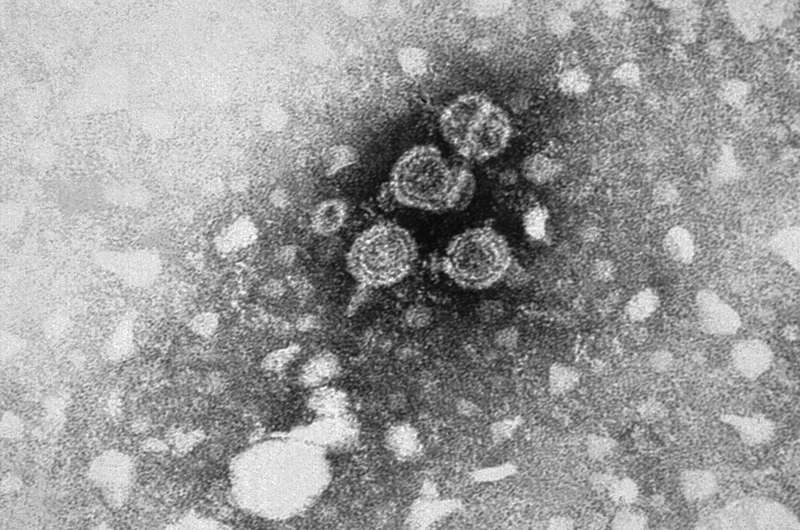A microscopic image of the Hepatitis B virus, taken by the Centers for Disease Control and Prevention
Worldwide, 880,000 people die each year as a result of infection with the hepatitis B virus (HBV). Antiviral drugs that can suppress replication of the virus are available. However, these must be taken for decades, as there is yet no curative therapy for chronic HBV infection available. Biomarkers—biological molecules in blood serum that can be used to monitor the course of chronic infection and the response of patients to new therapies—are needed to guide the development of these therapies and to assess their efficacy. Potential biomarkers have now been evaluated in a widely acclaimed review and a roadmap for their further development has been established.
The development of curative therapies for chronic hepatitis B virus infections, which affect approximately 296 million people worldwide, is being intensively pursued in public and private health research. This is because these viruses frequently cause liver cirrhosis and liver cancer. Suitable biomarkers are urgently needed to assess the efficacy of new therapies and to develop them further.
During a symposium of the "International Coalition to Eliminate Hepatitis B Virus (ICE-HBV)" in October 2020, the clinical utility of classical and new viral and immunological biomarkers was discussed. Building on this discussion, a group of hepatitis researchers from academia, clinical practice and the pharmaceutical industry—including DZIF scientists Prof Maura Dandri, Prof Dieter Glebe and Prof Ulrike Protzer—spent two years investigating and evaluating the strengths, weaknesses, opportunities and challenges of existing and new, innovative HBV biomarkers. Presented in the journal Nature Reviews Gastroenterology and Hepatology, the international group developed a detailed roadmap for further scientific action in biomarker development. The aim is to pave the way for the development of curative therapies for chronic hepatitis B as quickly as possible.
Prof Dieter Glebe emphasizes that "what we can routinely determine in our diagnostics is not sufficient to conclusively assess the cure of an HBV infection."
"To effectively develop new therapies, we need better biomarkers," adds Prof Ulrike Protzer.
The biomarker development roadmap involved scientists from eleven countries and five continents. Prof Maura Dandri emphasizes the importance of this outstanding international collaboration between public science institutions, clinics and pharmaceutical industry: "Research into new HBV biomarkers also plays a central role in the DZIF project "Hepatitis B—cure", and the HBV biomarker study demonstrates the DZIF's essential contribution to this international effort."
More information: Anna Kramvis et al, A roadmap for serum biomarkers for hepatitis B virus: current status and future outlook, Nature Reviews Gastroenterology & Hepatology (2022). DOI: 10.1038/s41575-022-00649-z
Provided by Deutsches Zentrum für Infektionsforschung























